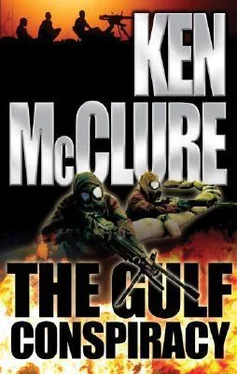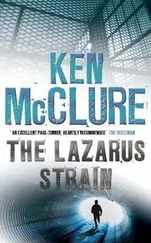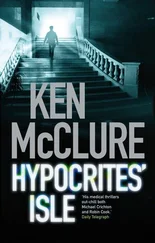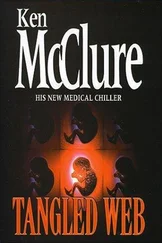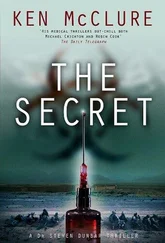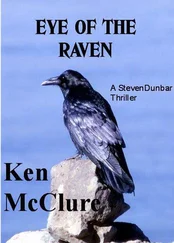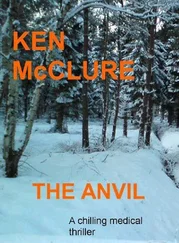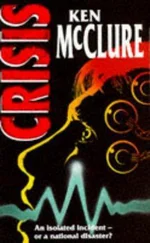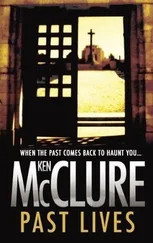Steven knew that the most unlikely people could turn to out be heroes under pressure and, conversely, those who’d been champions on the sports field could equally well prove to be craven cowards when life’s contests were played out for real and the stakes were infinitely higher.
Steven had been sad when it came time for him leave the army — the operational life of an SAS soldier not being much longer than that of a professional footballer. During his service he had become an expert in field medicine and had acquired many military skills but little to commend him or equip him for a life as a civilian other than his original medical degree. The prospect of life as an in-house physician with some large corporation had been looming when he had been rescued from what almost certainly would have been a life of structured boredom by John Macmillan, who had offered him the job of medical investigator with the Sci-Med Inspectorate.
Sci-Med was Macmillan’s brainchild: it operated as a small independent unit within the Home Office, its remit being to investigate potential problems and possible wrong-doing in the hi-tech worlds of science and medicine, areas where the police had little or no expertise. This was no reflection on them. These areas of modern life had just grown to be too complicated for the scrutiny of outside observers. Accordingly, the small team of investigators recruited to Sci-Med were graduates in either science or medicine and with a range of experience acquired in pursuing other careers before coming to Sci-Med — post-graduate degrees from the university of life, as Macmillan termed it.
From the outset, Steven had fitted in perfectly to Sci-Med. He found the job challenging, exciting — even if, on occasion, downright dangerous — but his background of having had to use his initiative while under great stress in the deserts of Iraq or the jungles of South America had served him well and he had proved himself over the intervening years to be the investigator that Macmillan would place most trust in.
For his part, Steven had the greatest respect for John Macmillan, who, on many occasions in the past, had needed to fight his corner against heavy odds in order to maintain the independence of the Inspectorate. It was inevitable from time to time that Sci-Med would come across something that perhaps another arm of government — often a far more powerful one — would rather be kept under wraps but Macmillan would not be swayed. In his book, truth was not to be compromised on any political altar. He was also unfailingly loyal to his people on the ground, something that Steven had cause to be grateful for on more than one occasion when he had trodden on the toes of the powerful.
Although John Macmillan did not behave like a Whitehall mandarin — in that he did not display any of the signs of Machiavellian philosophy that a life close to politics almost inevitably breeds — he did look like one. He was tall, erect, with swept-back silver hair and a smooth, unlined complexion that belied his years.
‘Sorry to keep you waiting,’ he said, replacing the telephone as Steven entered. ‘Your colleague, Scott Jamieson’s, exposure of an incompetent surgical regime at that hospital down in Kent hasn’t exactly gone down well with the Department of Health.’
‘I didn’t suppose it would,’ said Steven.
‘Good God, the figures spoke for themselves,’ said Macmillan. ‘A blind butcher with a penknife could have achieved a higher success rate. If the management had faced up to this a couple of years ago the hospital wouldn’t have the press camped at their gate right now and there would be a lot more space left in the local cemetery. Why on earth didn’t his colleagues say something?’
‘Maybe they just didn’t want to see what was there in front of them,’ said Steven. ‘It’s a common enough phenomenon. Apart from that, whistle-blowing isn’t exactly encouraged in the medical profession. You can end up practising in New Zealand.’
‘Well, I can’t see any such conflict arising in this instance,’ said Macmillan, pushing a photograph across his desk towards Steven.
Steven picked up the A4 size print and grimaced at the sight of a man, lying spread-eagled, face-down beside a stretch of still water. Chequered tape at the scene suggested that a police photographer had taken it.
‘Dr George Sebring,’ said Macmillan. ‘Thirty-eight years old, a lecturer in molecular biology at Leicester University. The police pulled his body from a canal three days ago after a man walking his dog found him lying in a reed bed. You know, I sometimes think that if people stopped walking their dogs the police might be out of a job. Dog-walkers seem to turn up more dead bodies than anyone else on the planet.
‘Good point,’ said Steven. ‘What’s our interest?’
‘Sebring joined the university ten years ago. Before that he worked at Porton Down.’
‘Our microbiological defence establishment,’ said Steven.
‘He was quite a high-flier but he suffered some sort of nervous breakdown in the early nineties and had to give up his job.’
‘Defending get too much for him?’ said Steven, tongue in cheek.
Macmillan, unsmiling, looked over his glasses at him and said, ‘There’s a school of thought that says if you go up against Goliath with a slingshot in the real world, you’ll end up with it inserted in your nether regions — sideways.’
‘Point taken,’ said Steven. ‘We have to be as bad as each other. Only the philosophy behind it varies.’
Once again Macmillan fixed Steven with a stony stare. ‘Sometimes I admire your idealism, Steven,’ he said. ‘At others...’ He let Steven fill in the blank and he responded with, ‘Sorry.’
‘At first the Leicester police didn’t see anything suspicious in Sebring’s death. They were inclined to treat it as suicide rather than an accident because of his medical history but his wife insisted that her husband had not been suicidal, although she did admit that he had appeared to be very troubled of late. She believed it had been an accident.’
‘So who was right?’
‘Neither,’ said Macmillan. ‘The police pathologist rained on everyone’s parade. Apparently he’s a young chap and new to the job, bright-eyed and bushy-tailed, you might say.’
Steven had difficulty in ascribing this description to any pathologist he personally had ever come across. Morose, cynical, alcoholic or even downright weird, yes, but bright-eyed and bushy-tailed?
‘He established that Sebring did die of drowning,’ continued Macmillan, ‘but he then showed that the water in Sebring’s lungs was not canal water but Leicester tap water.’
‘So he was murdered?’
Macmillan nodded. ‘Drowned, probably in a domestic bathtub, and then dumped in the canal to make it look like an accident or suicide.’
‘Motive?’ asked Steven.
‘The police have drawn a blank. He seems to have been a popular lecturer with the students and a respected colleague among his peers. Everyone liked him.’
‘Except the man who held his head under the bath water until he drowned,’ said Steven.
‘Quite so,’ said Macmillan, managing to convey that he wouldn’t have put it so bluntly himself.
‘Did his wife say what had been troubling him?’ asked Steven.
‘Good question,’ said Macmillan. ‘She said a man came to see him a few weeks ago, an ex-soldier who’d served in the Gulf War. She thinks his name was Maclean, although she couldn’t swear to it but she is pretty certain he was Scots because of his accent. Apparently he knew Sebring when he worked at Porton Down.’
‘What was a soldier doing at Porton Down?’ asked Steven.
‘Something for you to find out,’ said Macmillan. ‘She said that Maclean seemed angry about what he called Gulf War sickness and seemed to be under the impression that her husband knew some secret — something that could help him in his campaign. Sebring wouldn’t tell her anything when he’d gone. She didn’t press him because she knew that his work at Porton was classified but she’s sure his change in behaviour stemmed from that day.’
Читать дальше
